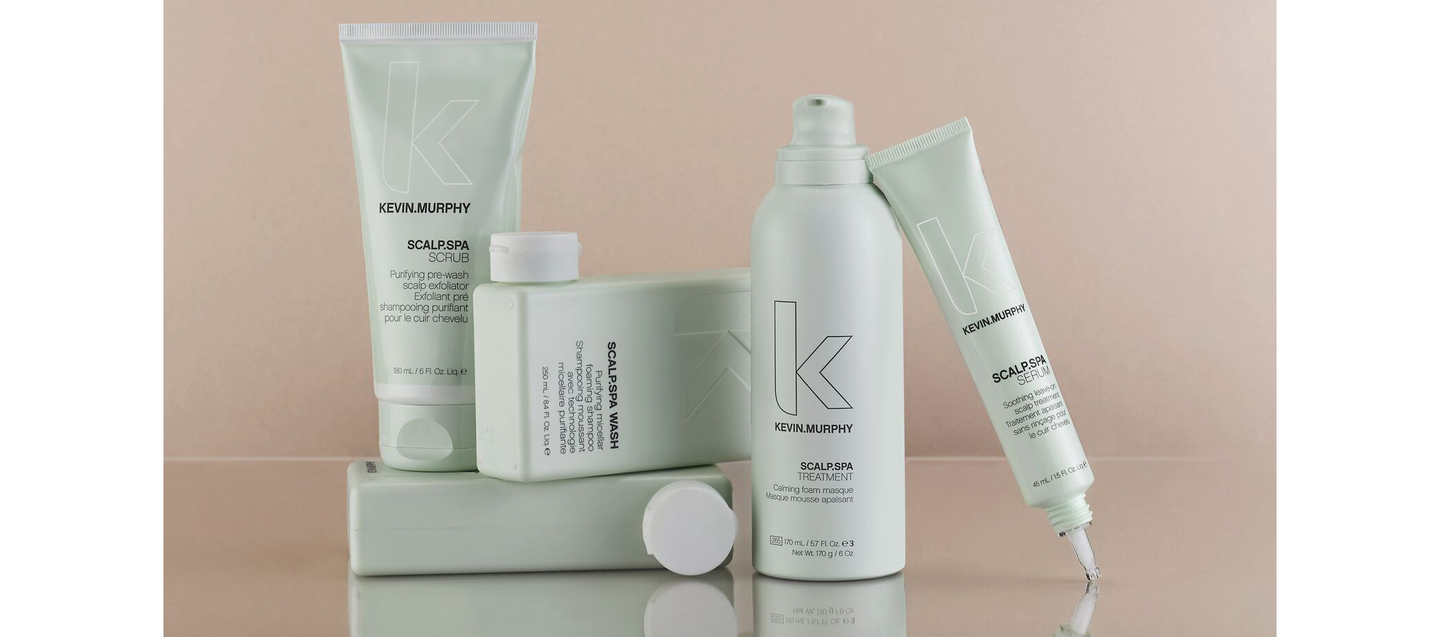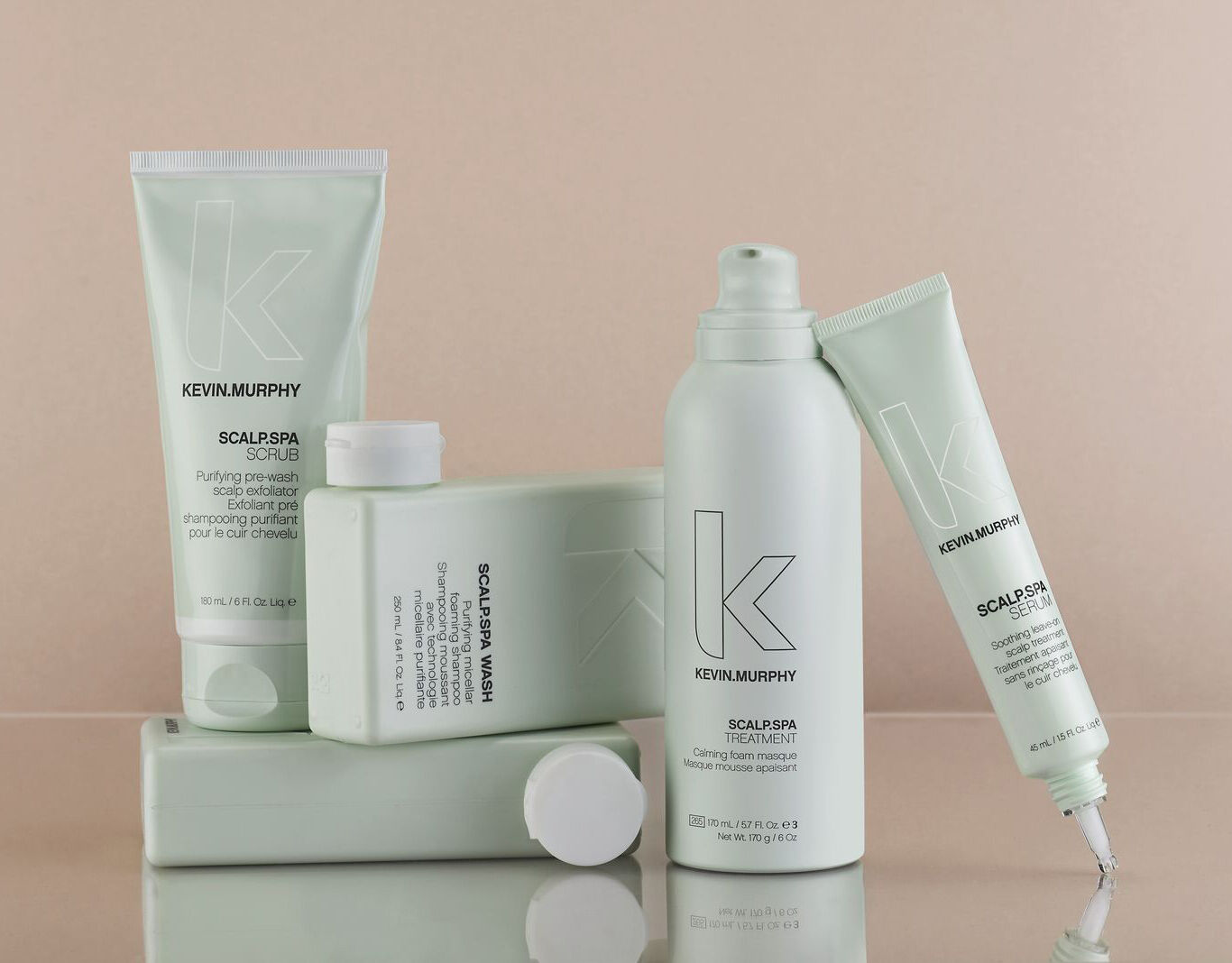Causes And Cures For Greasy Hair
Many people are unaware that not having to wash your hair daily is a luxury. It saves a lot of time, money, and effort because washing the grease out of your hair every day is a daunting chore. While some might accept this dreadful fate, others will fight the issues and find out what’s causing them. For those tired of allowing your mornings to revolve around hair washing and blow-drying, we’ve broken down the most common causes of greasy hair and tips to prevent excessive sebum accumulation.
What is sebum, and how does it affect our hair?
The primary role of our skin is to contain our organs, regulate body temperature, and act as a barrier. It is made of minerals, proteins, and fats, and its ability to perform these roles depends on an equilibrium of those three elements. Our scalp skin is the same as the rest of our body’s skin, only covered with hair. To protect and keep the head-surface healthy, sebaceous glands lubricate sebum – an oily mixture of fatty acids, glycerides, waxes, and other lipids.
Sebum’s primary roles are to balance the skin flora, protect the skin from infections, and prevent moisture loss on the skin surface. When glands work overtime, sebum spreads to strands, making them oiler. The secretion quickly becomes a mix of dust, bacteria, and minerals clogging the pores, often resulting in itching, unpleasent smell, and seborrheic dermatitis.
Most common causes of oily hair
Many factors affect sebum production. Genetics plays a significant part, but so do hormonal issues, medicines, stress, diet, temperature, and our hair routine. Even though we can’t alter genetic factors and chronic conditions, we can control other causes of greasy hair by adjusting them to our scalp needs. While correcting your diet and managing stress might take some time, introducing a toxin-free, nourishing regimen and changing your washing routine gives immediate results.


People with hair straight texture suffer from greasy hair more because the properties of such strands show less resistance to sebum spreading further away from the scalp.
Avoid shampooing hair every day
When struggling with a greasy scalp, you will most likely need to wash your hair daily. However, using shampoo to clean the oily buildup can make your hair even greasier. How is that possible? The skin’s primary goal is to protect. Thus, when faced with external threats, it reacts to restore equilibrium.
When you frequently wash your hair with shampoo, you risk stripping natural oils that protect the scalp, roots, and strands. The skin’s immune system detects the drying and enhances sebum production to compensate for what’s lost. That’s why it’s crucial to determine how often should you wash your hair and what regimen to apply for your specific problem.
Most people with very greasy hair benefit from skipping using shampoo every day. But it’s hard to maintain your hair hygiene and get rid of old habits, especially if you got used to washing your hair while showering as most men do. Oily hair is a common occurrence in women’s and men’s scalps, so adjusting your hair care to your mane needs is an inevitable step in achieving the hair you want.
Adjust your diet by adding ingredients with “oil-control” properties
Luckily, you can fight oily scalp and skin from the inside as well! Consider including more food rich in niacin, retinol, and salicylic acid in your diet. These nutrients act as antioxidants, but also they speed up cell regeneration, boost collagen production, and more importantly, help with oil control. Therefore, ingredients that contain high levels of these vitamins and acids will contribute to restoring and improving your skin’s properties.
- Retinol – Retinol is a form of Vitamin A found in animal-based products such as fish, dairy, butter, and liver.
- Salicylic Acid – Plants produce salicylic acids as a defence mechanism against external factors. Therefore, many fruits and vegetables contain good amounts of it. However, you can find the highest concentration of retinol in radishes, cucumber, zucchini, spinach, tomato, broccoli, sweet peppers, and mushrooms.
- Niacin – This micronutrient is a form of Vitamin B3. It resides in protein-based food like pork, turkey, tuna, chicken breast, liver, ground beef, and salmon. Still, you can find it in plants also, especially in potatoes, green peas, mushrooms, avocado, whole wheat, brown rice, and peanuts.
Adjusting your diet based on your body’s needs will significantly improve your physical and mental well-being. Remember, food is not just a fuel for turning into energy; it is also a key part of achieving our hair’s ultimate potential.
Switch to products that balance scalp health
When buying shampoo or a conditioner, do you ever read the labels and the ingredients? What are your criteria when opting for a product? Is it a word-of-mouth recommendation? Do you follow a brand? Or maybe sometimes you like trying new products on the market?
When facing a hair problem such as an oily scalp, have a more careful approach to your care regimen. If you’re using many styling products, such as creams, waxes, and oils, try to keep them away from your scalp. Your skin needs rest from chemicals and oils that might contribute to scalp buildup. Switching to a sulphate-free, nourishing and balancing formula, will show progress after a couple of washes. Wheat acid, sage, green tea extracts, and citrus flower oil blends are the best natural way of fighting the excessive sebum buildup while providing skin and hair with the necessary vitamins for optimum functioning.


Getting to the root of the problem in the case of over-oily hair means literally treating your roots with great care.
Image source: hairxoruth
Perform scalp detox weekly
Since dust, dirt, and other particles stick to oily scalps quicker, the head’s surface is the perfect breeding ground for bacteria, germs, and even fungi that cause dandruff. To eliminate the possibility of new hair issues and help control sebum, perform a deep hair cleansing weekly. After removing buildup on the scalp with a detoxifying regimen, your skin will be able to absorb nutrients better, which will speed up the balancing process and help your hair stay fresher for longer.
Temporary solution for greasy hair
Keeping your hair clean every day can be challenging. Constant washes and blow-drying take time and patience, so it’s no wonder you want to resort to a quicker solution to achieve the desired fresh looks. While dry shampoos are lifesavers when our schedules are cramped, some might have harmful components that could also result in greasy hair.
When considering products that restore instant freshness, look for dry shampoos with quality ingredients. Avoid those that contain paraben and sulphates, and make sure to apply them correctly. Usually, dry shampoo is sprayed on the scalp and a couple of inches around the roots. There is no need to cover the entire hair surface, especially if you wash it often. And if you need a hydration boost after a dry wash, there is an efficient solution for that as well! Conditioners like shampoos, come in many forms, including sprays.
When nothing else works…
… visit a hairstylist, dermatologist, or doctor. It’s easy to get to the root of the problem when you know there are specific conditions that affect your hair’s well-being. Still, sometimes even using the highest quality products, washing your hair correctly, and eliminating all harmful ingredients from your hair routine, give no positive results. In such cases, the problem is most likely because of hormonal disbalance, medical condition (or medicaments), or stress. Only a hair expert can identify a flawed routine and give you the help you require. Bear in mind that the causes of greasy hair are many. Providing a certified professional with all the symptoms of your entire skin condition, not just the scalp, might help identify the root of the problem quicker!
Featured image source: vibehaircompany


